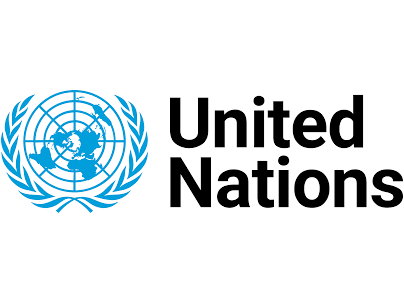Health
COVID-19: Kwara Nurses, Midwives Protest Non- provision of PPE

From Alfred Babs, Ilorin
Members of the National Association of Nurses and Midwives, (NANNM) working at the General Hospital, Ilorin on Thursday down tools in protest against what they described as poor and risky condition of work.
Speaking during their protest in the hospital premises, the health workers claimed the state government did not provide personal protective equipment (PPE) for them in the accident and emergency units as well as other units despite the coronavirus pandemic in the state.
The nurses and midwives also said they now work bi-shift of ten to fourteen hours daily without provision of call food or allowances for nurses as being provided for some other health workers.
The auditor of the association, Funke Alo, added that designated pick-up points for workers on duty are few, which makes workers go through stress before finding their way to the pick-up points.
While accusing the government and top management of disregarding their letter where they pointed out their challenges and the risk involved in their working condition, the protesting health workers at the General Hospital said they would not resume work until the issues were addressed.
Efforts to get the response of Kwara state government proved abortive as the state Commissioner for Health, Dr Raji Razak did not pick all calls made to his telephone number while the text message sent to the number was not replied as at the time of sending the report.
In another development, Kwara state chapter of the Nigeria Medical Association (NMA) has directed its members not to consult or treat any patient without Personal Protective Equipment (PPE).
In a statement jointly signed by the Chairman and Secretary, Dr Kolade Solagberu and Dr Majeed Mohammed respectively on Wednesday in Ilorin, the association said it noted that there was inadequacy of PPEs in majority of the public and private hospitals in the state.
The NMA also said there was lack of preparedness for the pandemic by majority of the hospitals in the state.
”We commend the efforts of the state government on COVID-19 in equipping the Kwara State Isolation Centre at the Specialist Hospital, Sobi.
”But there is lack of motivation for the front line health workers in terms of securing life insurance, indemnity and other incentives.
”All doctors/health workers should be provided with the appropriate PPEs in the line of duty in all private and public hospitals.
”Government and heads of hospitals should make provision for these items and they should be readily available for use.
”In view of this, the State Executive Committee (SEC) has therefore directed its members not to consult or treat patients without PPEs,” it said.
The association added that basic and intensive care equipment such as infrared thermometers, monitors, ventilators and others should be made available.
”The isolation centre should be well furnished and manned by trained personnel,” it said.
The NMA also encouraged doctors to have high index of suspicion as many cases may be asymptomatic.
”Lockdown should be properly enforced and there should be availability of public ambulances and emergency medical teams to convey emergencies to the hospital.
”We enjoin the public to avoid panic and stigmatisation as COVID-19 is not a death sentence, ” the association said.
It, however, encouraged exposed members of the public to the two COVID-19 cases in the state to volunteer information freely and ensure self-quarantine.
Regarding the index case of COVID-19 in the state which unduly exposed some of its members, it said the Ethical Committee of the association would investigate and submit its report to SEC.
”We also advise University of Ilorin Teaching Hospital(UITH) to follow due process on the matter and the association will follow it to a logical conclusion,” the NMA said.
It, however, proposed a compensation package for front line doctors and health workers while calling on federal and state governments to make available a diagnostic centre in each state of the federation.
Health
Lassa Fever Death Rate Rises as Cases Spread — NCDC

The Nigeria Centre for Disease Control and Prevention (NCDC) has reported a rise in the fatality rate of Lassa fever, as the disease continues to spread across states with new confirmed cases and more deaths.
The NCDC disclosed this in its latest situation report for Epidemiological Week 23, June 2–8, 2025, which was posted on its official website on Wednesday.
According to the agency, Nigeria has recorded 143 deaths from 758 confirmed Lassa fever cases so far this year.
This translates to a case fatality rate (CFR) of 18.9 per cent, higher than the 17.8 per cent recorded during the same period in 2024.
The NCDC also revealed that 11 new confirmed cases were reported in the week under review, up from eight cases recorded the previous week.
The new cases were detected in Ondo, Edo, Bauchi, and Taraba States.
“In 2025, 18 states have recorded at least one confirmed case of Lassa fever, spread across 96 Local Government Areas.
However, 90 per cent of all confirmed cases were reported from just five states: Ondo 31 per cent, Bauchi 25 per cent, Edo 16 per cent, Taraba 15 per cent, and Ebonyi 3 per cent,” the report stated.
The agency noted that the age group most affected remained young adults aged 21 to 30 years, with a median age of 30.
It also reported one new healthcare worker infection in the reporting week, bringing the total number of affected health workers in 2025 to 23.
The NCDC identified several challenges fueling the outbreak, including late presentation of cases, poor health-seeking behaviour, and high cost of treatment, inadequate sanitation, and low awareness in affected communities.
To curb the spread and reduce deaths, the agency said it had activated a multi-sectoral Incident Management System and deployed 10 Rapid Response Teams to states with the highest burden.
Additional response measures included the training of health workers on case management, the launch of Infection Prevention and Control (IPC) e-learning platform, community sensitisation campaigns, environmental response interventions, and media outreach in collaboration with stakeholders.
The NCDC urged Nigerians to maintain high hygiene standards, seek medical attention early when symptomatic, and avoid contact with rodents and their droppings, known vectors of the disease.
Lassa fever is a viral hemorrhagic disease transmitted primarily through contact with the urine or stool of infected rats.(NAN)
Health
UN Women Trains Bauchi Artisans on Biogas Digester Installation

The UN Women says it has trained 20 artisans and seven agricultural extension workers on biogas digester installation, maintenance, and kitchen gardening to boost livelihoods in Bauchi’s rural communities.
The National Coordinator for the UN Women Biogas Projects,
Mr Desmond Osemije, disclosed this on Tuesday at the opening of the training in Bauchi.
Osemije said that the initiative was also designed to tackle climate challenges in rural communities.
He explained that the 20 technicians, primarily plumbers, were being equipped with the skills to install and maintain biogas digesters and will, in turn, train 250 rural women beneficiaries in Bauchi and Dass Local Government Areas.
Osemije further said that 250 rural women would benefit from the biogas digester, comprising 125 each from Bauchi and Dass LGAs.
“Additionally, seven agricultural extension workers are undergoing training to establish kitchen gardens, enabling rural households to grow vegetables and other crops for easy access to fresh food.
“This project seeks to improve the time use of women, boost agricultural productivity and incomes, enhance health standards, reduce deforestation, and contribute significantly to combating climate change,” Osemije said.
He also said that producing low-cost biogas from animal waste would provide rural women with affordable clean energy for cooking, reduce income and time poverty.
It will also lessen their exposure to health hazards and risks of gender-based violence.
Also speaking, Hajiya Marka Abbas, the National Public Relations Officer of the Small Scale Women Farmers Organization of Nigeria, underscored the need for collaboration with UN Women to promote sustainable agricultural practices and a cleaner environment.
She said that the project not only trains women and artisans to install and maintain bio-digesters, but also creates opportunities for income generation and economic independence.
“By converting waste into biogas and organic fertiliser, the project supports a circular economy, lowers greenhouse gas emissions, and combats deforestation.
“The initiative is being implemented in partnership with the Bauchi State Government through the Ministries of Women Affairs and Agriculture,” she said
A participant, Miss Fatima Usman, expressed optimism that the training would enhance her livelihood and pledged to pass on the knowledge to other rural women. (NAN)
FEATURES
Why Genotype Compatibility Matters in Preventing Sickle Cell

Sickle Cell Disease (SCD) is a genetic blood disorder that arises when both parents carry the sickle cell gene, creating a 25 per cent chance of transmitting the disease to their offspring with each pregnancy.
Globally, an estimated 400,000 babies are born annually with SCD.
Medical experts have consistently warned that genotype incompatibility remains the leading cause of new cases and should be a central consideration among intending couples.
According to them, avoiding unions between carriers, especially those with AS and SS genotypes could greatly reduce new incidences, limiting them to carriers alone.
In high-income countries, the average life expectancy for individuals living with SCD is approximately 57 years.
However, the outlook is more severe in Sub-Saharan Africa, where 50 to 80 per cent of children born with the disease die before the age of five.
In contrast, babies born with SCD in the United States have a 95 per cent chance of reaching adulthood.
Given these disparities, experts are unanimous that prevention is the most effective and affordable strategy for eliminating the disease.
Prof. Titus Ibekwe, Provost of the College of Health Sciences, University of Abuja, underscored this view during a recent public lecture in Abuja.
It was titled “The Evolving Therapeutic Landscape in Sickle Cell Disease”.
He emphasised the importance of proactive partner selection based on genotype compatibility.
“Prevention is key in the fight against sickle cell, and this costs nothing.
“It simply means paying close attention when choosing a life partner ensuring that individuals with the AS genotype do not marry another AS.
It is also that an AS does not marry an SS, or two SS individuals do not marry”.
Ibekwe explained that such unions greatly increase the risk of having children with SCD, and that sustained adherence to genotype-based partner selection could drastically reduce, if not eliminate, the disease burden.
Beyond prevention, Ibekwe noted that treatment options for individuals living with the disease have expanded, including advanced therapies such as bone marrow transplantation and gene therapy.
He explained that gene therapy aims to correct the faulty gene responsible for the disease, allowing it to function like a healthy one.
Also speaking on the burden of SCD in Nigeria is Dr Maureen Achebe, Clinical Director of Haematology at Harvard’s Brigham and Women’s Hospital and Associate Professor of Medicine at Harvard Medical School.
She disclosed that Nigeria bears the highest global burden of the disease.
“Every year, 300,000 babies are born with SCD in Sub-Saharan Africa, and 150,000 of them are born in Nigeria alone,” she said.
Achebe outlined this as a major public health concern and warned that, with Nigeria’s high fertility rate, the number is expected to rise greatly by 2030.
She advocated for newborn screening to detect SCD before symptoms begin, noting that babies appear normal at birth but benefit greatly from early diagnosis and care.
“Without early identification and intervention, infants will continue to die of undiagnosed anaemia, pneumococcal sepsis, or severe malaria,” she said.
Achebe noted that the sickle cell trait historically evolved as a natural protection against malaria.
According to her, individuals who carry one sickle cell gene (AS genotype) are less likely to die from severe malaria compared to those without the gene (AA genotype).
“However, those with full-blown SCD suffer from chronic complications, reduced quality of life, poor educational and professional outcomes, and premature mortality,” she said.
Additionally, she emphasised the importance of preventive strategies, urging the use of vaccinations, daily folic acid supplements, and proactive infection control.
She also recommended hydroxyurea as a proven daily treatment that improves survival rates and reduces the severity of symptoms.
While she recognised the promise of gene therapy and bone marrow transplantation, she pointed out their high costs, limited accessibility, and the fact that children under 12 tend to respond better to these treatments.
Achebe clarified that while gene therapy treats the symptoms and effects of the disease, it does not eliminate the sickle cell gene from the patient’s reproductive cells, meaning affected individuals can still pass it to their children.
She warned that the total economic toll of SCD in Sub-Saharan Africa currently stands at over $9.1 billion annually, projected to rise to $10 billion by 2030.
“Tackling SCD requires strong financial and political will to scale up newborn screening and ensure nationwide access to care,” she said.
Achebe further stressed the need for public awareness, early diagnosis, and cultural education to dispel myths surrounding the disease.
“Sickle Cell Disease is a scientifically inherited condition, not caused by witchcraft,” she affirmed.
In the same vein, Prof. Obiageli Nnodu, Director of the Centre of Excellence for Sickle Cell Disease Research and Training (CESRTA), University of Abuja, highlighted the importance of continued research and capacity building.
She explained that CESRTA, established in 2015, has made major progress in clinical and translational research to bridge treatment gaps in Nigeria and beyond.
“Our centre provides platforms for skills development and engages in strategic collaborations with local and international institutions to improve care outcomes,” she said.
Following the 5th Global Congress on Sickle Cell Disease, the centre was upgraded to the National Centre of Excellence for SCD Research.
This is a major milestone in Nigeria’s efforts to combat the disease.
As the world marks World Sickle Cell Day on June 19, experts are calling for a renewed push toward genotype awareness, partner compatibility, and universal newborn screening as critical tools in the fight to eliminate SCD. (NANFeatures)

























